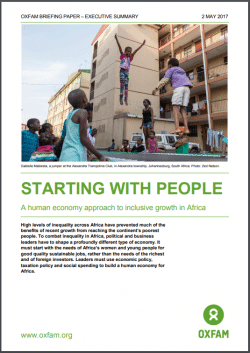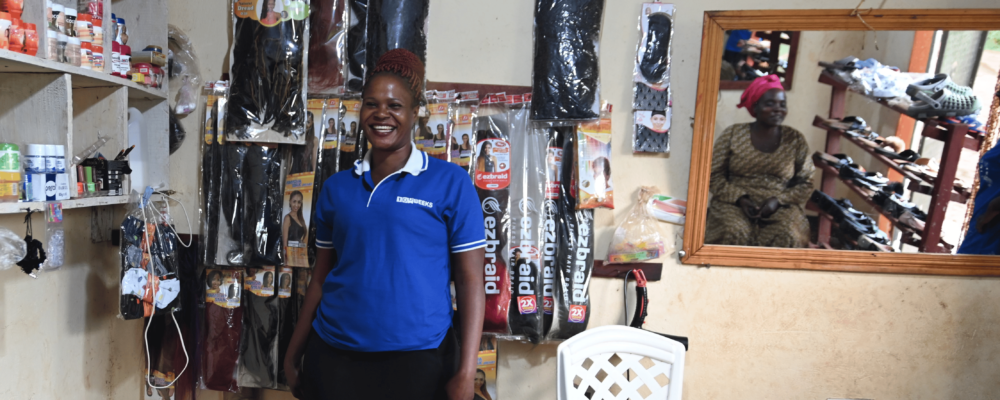
Policy highlights:
- A human economy approach recognizes the limits of growth measured through GDP and makes reducing inequality and the elimination of poverty the absolute goal of economic policy making in Africa.
- For Africa to drive such inclusive growth, governments should: 1) actively reduce inequality and formalize sections of the economy, 2) invest in a new deal for rural Africa targeting the needs of small-scale agricultural producers (invest directly in small-scale agricultural producers; prioritize investment in extension services and infrastructure; provide subsidies; ensure fair prices for food; and develop a new set of guidelines for large-scale private sector engagement in African agriculture), 3) promote business models with social benefits and support the development of SMEs, 4) prioritize fiscal justice (increase tax-to-GDP ratio, eradicate tax evasion and avoidance, and strengthen tax cooperation), and 5) invest in the human economy by adequately investing in public provision of health and education.










